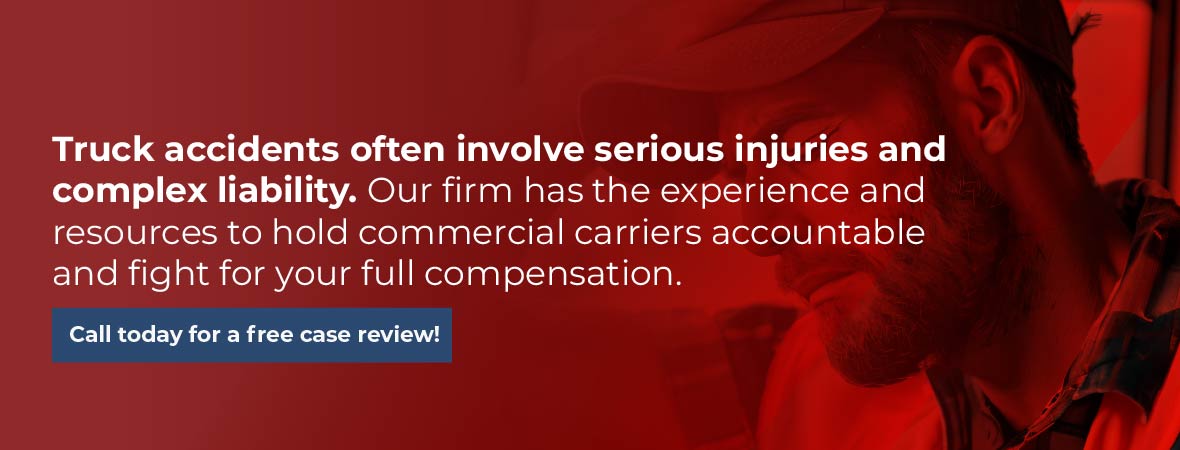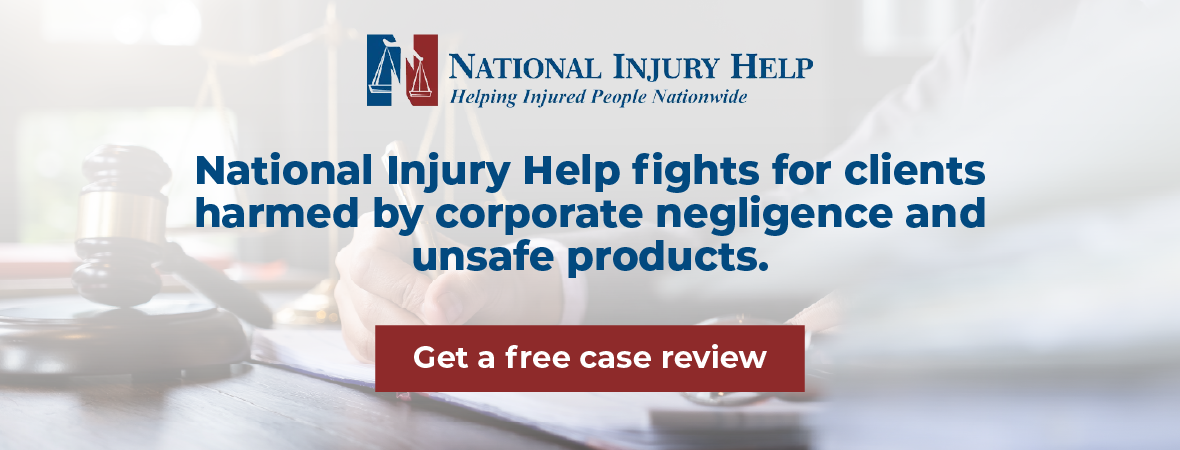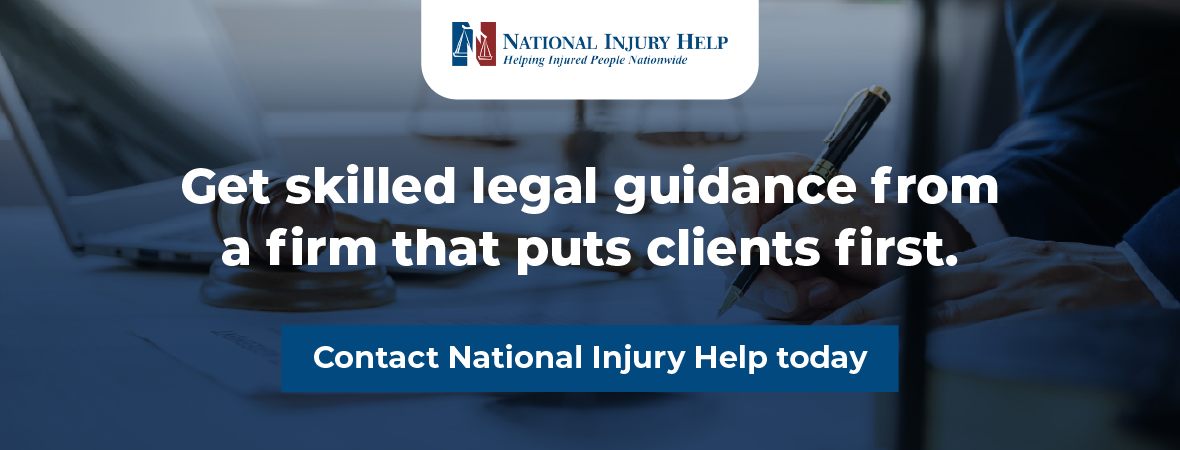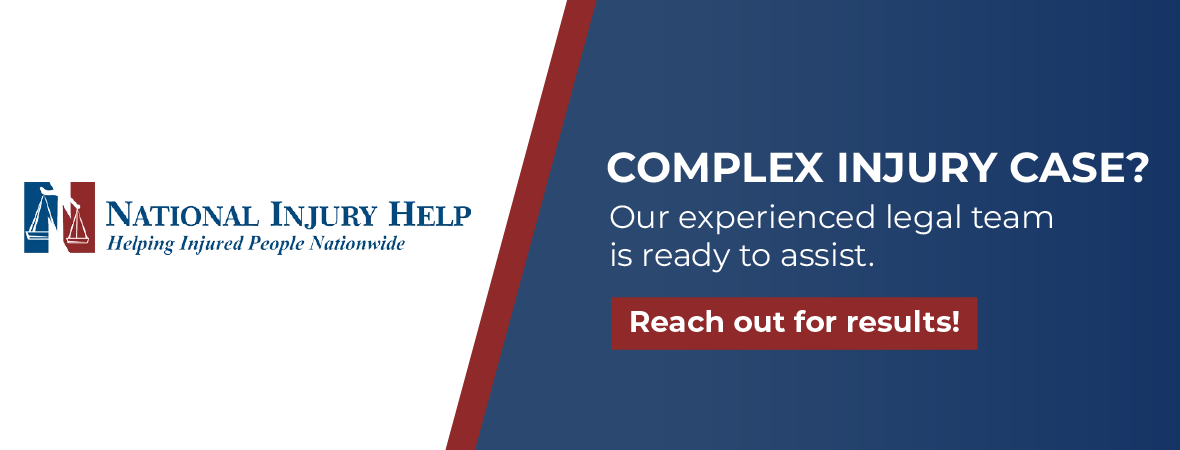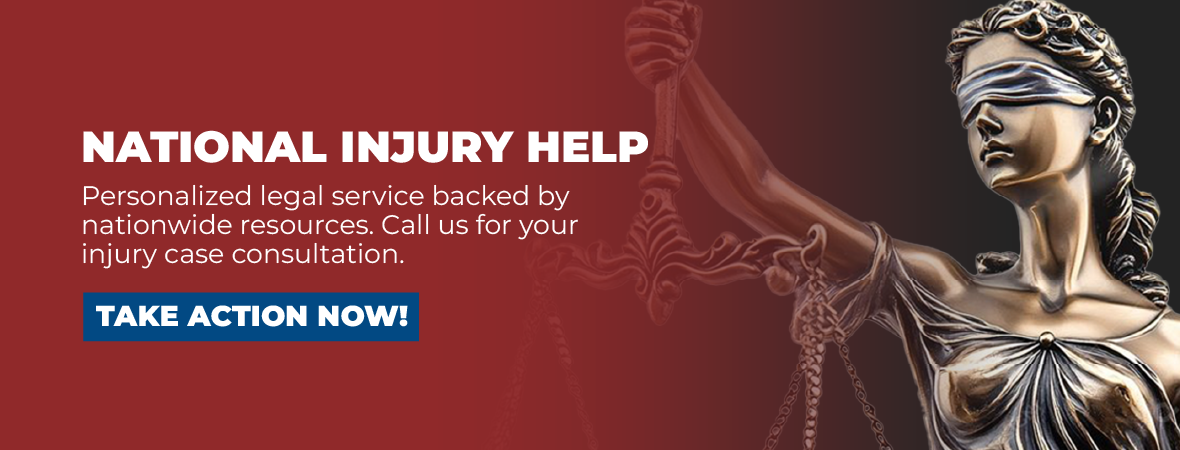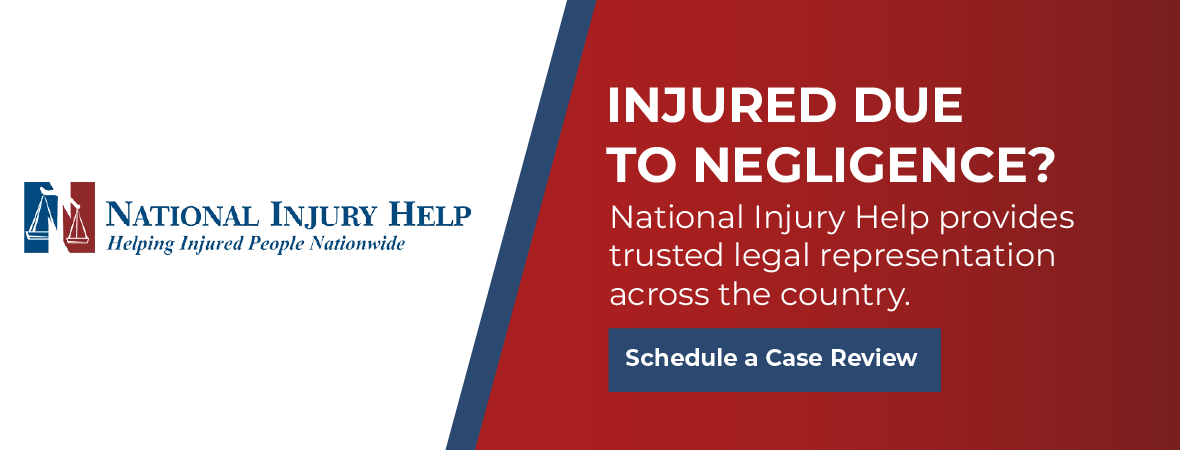Accidents involving Uber or Lyft can get complicated fast. This article explains how a rideshare accident lawyer can help you navigate tricky insurance issues and protect your rights. If you were hurt in a rideshare crash, contact National Injury Help. We are ready to fight for your full recovery.
A decade ago, getting a ride meant calling a cab or asking a friend for help. Today, millions of Americans turn to rideshare apps like Uber and Lyft to move from place to place. Whether you’re commuting to work, heading to the airport, or enjoying a night out, a driver can be at your curb within minutes. This convenience has reshaped urban transportation, but it has also introduced new legal and insurance complications when accidents occur.
Many people assume that if they are injured in a rideshare crash, the rideshare company will automatically pay for their medical bills and other losses. Unfortunately, that is rarely the case. These accidents often involve overlapping insurance policies, disputes over fault, and digital records that only the rideshare companies can access. For victims, it can be overwhelming to sort out who is responsible while trying to recover from injuries.
This is where a rideshare accident lawyer becomes essential. An experienced attorney understands how to identify the correct insurance coverage, gather evidence before it disappears, and negotiate with billion-dollar corporations that often try to shift responsibility. This article explains what makes rideshare accidents legally complex, who can file a claim, what damages are available, and why hiring the right lawyer is key to receiving full and fair compensation.
What Is a Rideshare Accident?
A rideshare accident is any crash involving a vehicle driven for a transportation network company, usually Uber or Lyft, while the driver is using the app. This includes a wide range of scenarios, such as:
- A passenger injured when their Uber is hit by another vehicle
- A pedestrian struck by a Lyft driver rushing to complete a trip
- A cyclist sideswiped by a rideshare vehicle making an illegal turn
- A rideshare driver injured in a collision caused by someone else
Rideshare vehicles are privately owned, and drivers switch between personal and commercial driving by simply toggling the app. That simple action has a huge impact on which insurance policy applies. Understanding whether the driver was active on the app at the moment of the crash is one of the most important factors in a rideshare lawsuit.
Why Rideshare Accidents Are So Legally Complex
In a typical car accident, there are usually two drivers and two insurance policies involved. With a rideshare accident, however, multiple insurance policies can be triggered, including:
- The rideshare driver’s personal auto policy
- The rideshare company’s contingent liability policy
- The company’s full commercial coverage
- The policy of another driver involved in the crash
Sorting out which policy applies requires knowing exactly what the rideshare driver was doing at the time of the crash. Were they waiting for a ride request, driving to pick up a passenger, or transporting someone? Insurance coverage shifts based on these phases, and many victims are unaware of how quickly liability changes hands.
In addition, rideshare companies treat their drivers as independent contractors, not employees. That classification makes it harder to hold the companies directly responsible unless you can show they were negligent in their hiring, training, or safety policies. A skilled Uber accident attorney can cut through these barriers and build a strong case.
Understanding Rideshare Insurance Coverage
Uber and Lyft provide a tiered insurance system that activates based on the driver’s app status. Here’s how it typically works:
1. App Off
When the driver is not using the app, their personal auto insurance is the only coverage. Most personal policies do not cover accidents during commercial activity, and some specifically exclude rideshare driving.
2. App On, No Ride Accepted
If the driver has the app on and is waiting for a ride request, Uber and Lyft provide limited liability coverage. This usually includes:
- Up to $50,000 per person for injuries
- Up to $100,000 per accident
- Up to $25,000 for property damage
This coverage only applies if the driver’s personal insurance denies the claim or provides too little coverage.
3. Ride Accepted or Passenger On Board
Once the driver accepts a trip or has a passenger in the car, the highest level of coverage applies. This includes:
- Up to $1 million in third-party liability coverage
- Contingent comprehensive and collision coverage for the driver’s vehicle
- Uninsured and underinsured motorist coverage
The challenge for victims is proving exactly which phase the driver was in at the moment of the crash. That often requires app data, GPS logs, and company records that are not shared voluntarily. A rideshare accident lawyer can issue legal requests to secure this evidence.
Who Can File a Rideshare Injury Claim?
Several categories of people may have the right to file a claim after a rideshare accident:
Injured Passengers
Passengers are usually not at fault and can pursue compensation from the driver, the rideshare company’s insurance, or another involved driver. Injuries often include concussions, fractures, neck injuries, and back strain. Even soft-tissue injuries that seem minor at first can lead to long-term pain and high medical bills.
Rideshare Drivers
If another driver causes a crash, the rideshare driver can file a claim through that driver’s insurance. They may also be covered by Uber or Lyft’s policies if the damage exceeds what their personal policy offers. Because rideshare drivers are considered independent contractors, workers’ compensation usually does not apply. A knowledgeable Uber accident attorney can help identify all available coverage.
Occupants of Other Vehicles and Pedestrians
If you are hit by a rideshare vehicle while driving, biking, or walking, you may be eligible for compensation. In these cases, determining whether the rideshare driver was on duty is critical. If they were active in the app, you may be able to access the company’s $1 million liability policy.
Family Members of Deceased Victims
In fatal crashes, immediate family members or estate representatives may file a wrongful death claim. Compensation can include funeral expenses, loss of future earnings, and emotional pain. These are high-stakes cases, and rideshare companies often push back hard. A Lyft crash lawyer with experience in wrongful death lawsuits can make a major difference.
What Compensation Can You Receive?
Rideshare accident victims may be entitled to compensation for several types of losses. These include both financial losses and the personal toll of the injury.
Economic Damages
These cover direct financial losses, such as:
- Ambulance transport
- Emergency room bills
- Surgery and hospital stays
- Physical therapy and rehabilitation
- Prescription medications
- Lost income during recovery
- Future earning potential if you cannot return to work
Economic damages are supported by medical bills, pay stubs, and financial records. A lawyer will also work with economists to calculate long-term losses.
Non-Economic Damages
These cover personal and emotional suffering that cannot be measured with receipts. They may include:
- Physical pain and discomfort
- Emotional distress
- Anxiety or fear related to riding in vehicles
- Loss of enjoyment of life
- Disruption of relationships or family roles
Non-economic damages are harder to calculate, but they are just as important. A skilled attorney builds a compelling picture using testimony, medical evaluations, and statements from loved ones.
Punitive Damages
In rare cases, punitive damages may be awarded. These are meant to punish the at-fault party for extreme recklessness. Examples include:
- A driver operating under the influence
- A rideshare company ignoring repeated safety complaints
- A driver running multiple red lights or speeding excessively
Punitive damages send a message that such behavior will not be tolerated in rideshare operations.
Steps to Take After a Rideshare Accident
What you do right after the crash matters a lot. The steps you take can protect your health and your right to recover money for your losses.
Here are the most important steps to follow after a rideshare crash.
1. Get Medical Attention Right Away
Your safety comes first. Call 911 to report the accident and ask for emergency medical help. Even if your injuries seem small or you feel fine, it is still important to get checked by medical professionals. Many injuries, such as concussions, internal bleeding, or soft tissue damage, do not show symptoms right away. You may not feel the effects until hours or even days later.
Seeing a doctor also creates a medical record. This is essential because it links your injuries directly to the crash. If you delay treatment, insurance companies may argue that your injuries came from something else or were not serious. Getting immediate care protects both your health and your future claim.
2. Report the Accident
Always make sure the accident is officially reported. If you were in a vehicle that collided with a rideshare car, call the police and wait for them to create an accident report. If you were a passenger in an Uber or Lyft, report the crash both to the police and through the rideshare company’s app.
Inside the app, there is usually a section where you can report a safety issue or an accident. Provide key details such as the driver’s name, license plate number, and a screenshot of your trip if possible. This creates a timestamped record that proves you were a rideshare passenger during the crash. That can be very useful when filing an insurance claim later.
3. Gather and Save Evidence
Take photos and notes while the scene is still fresh. If you are able, use your phone to take pictures of:
- The crash scene from different angles
- Damage to all vehicles involved
- Your injuries (bruises, cuts, bandages)
- Skid marks, road signs, weather conditions, and traffic signals
Also, hold onto any paperwork and messages related to the crash. This includes:
- Hospital or clinic discharge papers
- Medical bills and receipts
- Prescriptions or follow-up care instructions
- Communication from Uber or Lyft
- Texts or emails from insurance companies
Having this information organized makes it easier for your lawyer to build a strong case and for you to stay on top of your recovery process.
4. Do Not Accept a Quick Settlement
Shortly after the accident, you might get a call or message from an insurance company offering a fast settlement. At the same time, this may sound like a good thing at first, especially if you have medical bills to pay or are missing work, but be very cautious.
These early offers are often much lower than what you truly need. They may not cover ongoing treatment, lost wages, future doctor visits, therapy, or pain and suffering. Once you accept a settlement, you usually give up the right to ask for more money later.
Always speak with a lawyer before signing anything. They can calculate the true value of your case and help you understand what a fair settlement looks like.
5. Contact a Rideshare Accident Lawyer
Dealing with a rideshare crash is not the same as handling a regular car accident. There may be more than one insurance policy involved, and the rules can change depending on whether the app was on, whether a ride was in progress, and who was at fault.
An experienced rideshare accident lawyer can:
- Collect evidence before it disappears
- Get witness statements while memories are fresh
- Request the rideshare app data to prove the trip details
- Handle talks with multiple insurance companies
- Fight for full compensation for medical bills, lost income, and more
Your lawyer will protect your rights, explain your options in simple terms, and deal with the legal stress so you can focus on recovering from the accident. Many rideshare attorneys work on a contingency fee basis, which means you don’t pay unless they win your case.
Why You Need a Rideshare Accident Lawyer
In a regular car accident, there are usually only two insurance policies involved: yours and the other driver’s. But in a rideshare crash, there could be multiple layers of insurance coverage, depending on whether the driver had the app on, was waiting for a ride request, was en route to pick someone up, or had a passenger in the car at the time of the accident.
Because of all these moving parts, it is important to have a rideshare accident lawyer by your side, someone who understands how these companies operate and knows how to hold them accountable.
Complex Coverage Rules
One of the first things an experienced rideshare lawyer does is identify which insurance coverage was active at the time of the crash. Uber and Lyft provide different levels of coverage depending on the driver’s status.
If the driver was off duty, their personal insurance applies. If they were logged into the app but had not accepted a ride yet, a limited policy kicks in. If they were in the middle of a trip or on their way to pick up a rider, a much larger commercial policy, often up to $1 million in liability coverage, applies.
Figuring out this coverage is not easy. It requires access to specific ride logs, timestamps, and app activity. A skilled lawyer will know how to request this information quickly and legally before it disappears or becomes harder to obtain.
Preserving Critical Evidence
Time is not on your side after a rideshare crash. GPS data, trip history, app login records, and vehicle inspection reports can all fade away or be overwritten if not preserved quickly.
A rideshare lawyer will send legal notices right away to prevent the rideshare company or the driver from deleting key information. This early step can be the difference between a strong case and a lost opportunity.
Handling Insurance Companies
Rideshare crashes often involve more than one insurance provider. You may need to deal with:
- The driver’s personal car insurance
- Uber or Lyft’s insurance
- Your own insurance company (especially for underinsured motorist coverage)
Trying to juggle all of this on your own is not just exhausting, it can seriously damage your claim. Insurance adjusters are trained to minimize payouts. They may try to twist your words, pressure you into accepting a low settlement, or argue that you were partly at fault. Your attorney will step in to handle all communications and push back when insurers play games.
Calculating the Full Value of Your Case
Injuries from a rideshare accident can affect your life in many ways. You may have physical injuries, emotional distress, lost income, and ongoing medical needs. A lawyer will not just look at your emergency room bills. They will also account for:
- Future treatment costs
- Therapy and rehabilitation
- Time off work or reduced ability to earn a living
- Pain and suffering
- Loss of enjoyment or quality of life
Without legal guidance, it’s easy to miss out on major areas of compensation. Your lawyer makes sure every dollar is counted, documented, and fought for.
Preparing for Court if Necessary
Most rideshare accident claims settle out of court. But sometimes the insurance company refuses to offer a fair amount. When that happens, your lawyer should be ready to take the case to trial. A rideshare accident attorney with courtroom experience is a powerful asset.
Insurance companies tend to offer better settlements when they know you are backed by someone who is not afraid to go before a judge and jury.
How Much Does a Rideshare Lawyer Cost?
After a rideshare accident, many people hesitate to call a lawyer because they worry about the cost. This is completely understandable. Medical bills may already be stacking up. You might be missing work, struggling to get your car fixed, or facing other sudden expenses. The idea of paying a lawyer on top of all that can feel overwhelming.
The good news is that most rideshare accident lawyers work under a structure called a contingency fee agreement. This means you do not have to pay anything upfront. In fact, you usually do not owe the lawyer a cent unless they successfully win your case. This arrangement makes legal help available to everyone, no matter your financial situation.
Let’s break down how this system works, what you can expect, and how to choose the right lawyer for your rideshare injury case.
Understanding Contingency Fees
A contingency fee agreement means that the lawyer’s payment depends on whether they win your case. If they do not win, you owe them nothing. If they do win, either through a settlement or a court verdict, their fee is a percentage of the amount you receive.
Here’s what that usually looks like in real life:
- You meet with a lawyer for a free consultation
- You sign a contingency fee agreement, typically ranging between 25 and 40 percent
- The lawyer starts working immediately on your case without charging you
- If you win or settle, the lawyer receives their percentage from the final amount
- If you do not win, you pay nothing for legal services
This setup gives lawyers a strong incentive to fight hard on your behalf. They only get paid if you do. It also means you don’t have to take on financial risk just to get legal help after an accident.
What Does the Lawyer’s Fee Cover?
When a lawyer works on contingency, they take on all the upfront costs of investigating and preparing your case. That can include:
- Ordering police reports and medical records
- Hiring expert witnesses, such as accident reconstruction specialists
- Filing court documents and covering administrative fees
- Investigating the scene and preserving evidence
- Negotiating with insurance companies
- Preparing for trial, if needed
If your case settles or ends in a verdict, the lawyer’s costs are often deducted from the total payout. Make sure to read your agreement carefully and ask how expenses are handled. Some lawyers deduct fees before taking their percentage. Others take their percentage first and then subtract costs. Either approach is legal as long as it is explained clearly in writing.
Questions to Ask When Choosing a Rideshare Lawyer
Not every personal injury lawyer has experience with Uber or Lyft crash cases. These claims have special rules, technology challenges, and legal defenses that require extra skill and strategy. When looking for the right attorney, ask the following questions:
1. Have You Handled Rideshare Accident Cases Before?
Experience matters. You want a lawyer who knows the ropes, someone who understands how these companies operate, how their insurance works, and how to counter the tactics they use to reduce payouts.
2. Do You Know How to Get App Data from Uber or Lyft?
Rideshare companies store valuable data such as:
- When the driver was logged in
- Whether a ride was active
- Driver GPS routes
- Communications between the driver and the company
An experienced lawyer will know how to file the right requests and subpoenas to access this information, even if the rideshare company is not being cooperative.
3. Have You Handled Cases Involving Independent Contractors?
Uber and Lyft drivers are not company employees. That means traditional rules of employer responsibility may not apply. A lawyer familiar with contractor-based claims will know how to pursue compensation from the driver’s policy, the company’s policy, or both.
4. Are You Prepared to Take the Case to Trial?
Most personal injury cases settle before trial. However, you still want a lawyer who is fully prepared to go to court if needed. Insurance companies take claims more seriously when they know the lawyer on the other side is not afraid of the courtroom. Ask whether the attorney has trial experience and how often they take cases all the way to a verdict.
What to Expect During the Case
Your lawyer will guide you through every step, but it helps to understand what typically happens:
- Initial Consultation: You share the details of your accident. The lawyer explains your rights and whether you have a strong case.
- Investigation: The attorney collects evidence, contacts witnesses, and may bring in expert support.
- Filing a Claim: This may involve submitting paperwork to the rideshare company’s insurer or filing a lawsuit.
- Negotiation: Your lawyer and the insurance adjusters go back and forth to agree on a fair settlement.
- Trial Preparation (if needed): If the other side refuses to settle fairly, your case may go to court.
This process can take a few months or more than a year, depending on the complexity of the case and how cooperative the other side is. During this time, your lawyer keeps you informed and handles the paperwork, legal arguments, and negotiations.
What If You Cannot Afford Other Expenses?
You may still have out-of-pocket costs for things like:
- Ongoing medical treatment
- Medications
- Transportation to doctor appointments
- Childcare if you are unable to perform daily tasks
Some lawyers can help you find doctors who agree to delay billing until after the case is resolved. Others may work with companies that provide pre-settlement funding to help you cover essential expenses. Ask your attorney if they have connections with providers who can help support you while your case moves forward.
Frequently Asked Questions
Can I sue Uber or Lyft directly?
This is a very common question, and the answer depends on the circumstances. In most cases, you will not file a lawsuit directly against Uber or Lyft. Instead, your claim goes through their commercial insurance policy, which covers up to $1 million in certain situations. These policies are in place when the rideshare driver is actively working, for example, if they are transporting a passenger or on the way to pick someone up.
Suing the company itself is more difficult. To succeed, you would need to prove the company was directly negligent. This could involve showing that Uber or Lyft failed to screen a dangerous driver, ignored a history of complaints, or had unsafe policies in place. These types of cases are rare but not impossible. An experienced lawyer can review your case and explain whether you might have grounds for a direct lawsuit.
What if the app was malfunctioning during the crash?
Technology isn’t perfect, and it’s not uncommon for drivers or passengers to report that the app froze or didn’t accurately track the trip. While a malfunction might create confusion at first, it does not remove liability from the driver or the rideshare company’s insurance provider.
Your attorney can request access to backend app data through a legal process called discovery. This helps determine whether the driver was actively working at the time of the crash. It also establishes which insurance policy applies, the driver’s personal policy or the commercial rideshare coverage. Technical issues may delay the process, but they don’t block your right to file a claim.
How long do I have to file a claim after a rideshare accident?
The deadline to file a legal claim, known as the statute of limitations, depends on the state where the accident occurred. In most states, this period ranges from one to three years from the date of the accident.
If you miss the deadline, you will likely lose the right to seek compensation, even if your case is strong. That’s why it’s important to speak with a lawyer as soon as possible. Early legal guidance helps protect your rights and allows time to gather evidence, speak with witnesses, and handle negotiations without rushing.
What if I wasn’t wearing a seatbelt when the crash happened?
Not wearing a seatbelt can affect your claim, but it doesn’t automatically mean you are barred from recovering compensation. Most states follow comparative fault rules, which means fault is shared between all parties involved.
If it’s determined that not wearing a seatbelt contributed to the severity of your injuries, your compensation may be reduced by a percentage. For example, if you are awarded $100,000 but are found to be 20% at fault for your injuries, your final payout could be $80,000.
However, that percentage is not fixed and can often be negotiated. A skilled lawyer can argue that the crash would have caused serious injury either way or that the driver’s reckless behavior was the primary cause of harm.
Should I speak to the rideshare company or their insurance adjusters myself?
It’s usually best to let your lawyer handle these communications. Insurance companies work to protect their bottom line and may try to get you to say things that can later be used against your claim. They might offer a low settlement early on before you fully understand the extent of your injuries.
Having an attorney means you have someone on your side who understands how to negotiate and who knows what your claim is really worth. Your lawyer can gather medical records, accident reports, and expert opinions to build a strong case while you focus on healing.
Contact a Rideshare Accident Lawyer Today
If you were injured in an Uber or Lyft accident, you deserve answers and compensation. Navigating a rideshare lawsuit is not something you should do alone. At National Injury Help, we are committed to standing with victims every step of the way.
Our team includes experienced rideshare accident lawyers who understand how to hold companies accountable and secure the settlements you deserve. Whether you were a passenger, driver, pedestrian, or another motorist, we are here to help.
Call 1 (800) 214-1010 today for a free consultation. There is no fee unless we win your case. Let us handle the legal complexity so you can focus on recovery and peace of mind.





